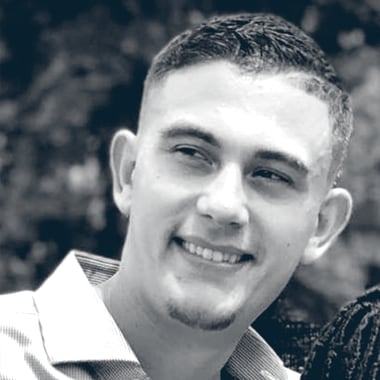Max G. Lesser
New York '14
Since his undergraduate years at George Washington University, Max understood that the law could be a tool to bring justice and fairness to the masses. But it wasn’t until he started working as a tutor at Kid Power that he understood how so many children were left out of education opportunities that could drastically change their lives.
Teaching special education in NY as a TFA corps member gave him the proximity he needed to keenly identify educational inequity and the systemic factors that feed into it. Since his days in the classroom, Max has leveraged his teaching experience and legal knowledge to advance criminal justice reform and restorative justice, policies he believes could promote justice, fairness, and healing in communities like the one he once served.
Q & A
Before joining Teach For America, what experiences informed where you are today?
The experience that made the greatest impression on me was working as a tutor and martial arts instructor for an after-school enrichment program called Kid Power. Being able to help DC youth stay on the ball with their work and bond with them over martial arts instruction was eye-opening, rewarding, and purposeful. Working with students approaching middle school who lacked even the most basic reading skills also gave me my first sense of the brutal inequality in the educational sphere and how it shapes students’ sense of self-worth.
Describe your first day of teaching. What emotions were you feeling? What struggles did you have to overcome?
My first day was terrifying, energizing, and inspiring. You immediately feel the weight of your responsibility: human beings are counting on you to reach their academic and personal potential. There is nothing easy about that, and it requires serious commitment and resilience. But if you hold strong to your purpose, build relationships with your students, and do your best to reflect and learn from your mistakes, you will grow as a person and a teacher. And as you grow, so will your students.
It sounds like a movie, but after my first day, I went to see my dad play jazz in Manhattan. I ended up sitting next to a woman who asked me what I did for a living. When I told her I was a new teacher, she said she was also involved in education regarding her father’s work. When I asked who her father was, she said Malcolm X, whose autobiography I planned on teaching that year. It felt like a good sign!
How has the corps been a catalyst for your personal transformation?
I believe proximity and relationships are prerequisites for larger structural change. You need to work directly on these issues to comprehend their human reality. Reading about them and considering them at the abstract level is not enough; you must do the work. When you do, you build relationships of trust and commitment with your students, and you will hold on to that sense of purpose for the rest of your life. You will have the fire to fuel your path to being an effective change-maker.
TFA makes you comfortable with responsibility and pressure. When you have had 30 students counting on you to graduate high school, the stress of classes and most traditional jobs just doesn’t phase you the same way. It also makes you extremely proactive, organized, and capable of complex problem-solving and strategic communication.
How did you find your current job? Why were you attracted to it?
When I started law school, I wanted to research and analyze the issues I had seen firsthand as a teacher: in particular, the “school to prison pipeline” that I saw drag so many of my promising students off course. My work with Professor Eduardo Ferrer has provided exactly that opportunity, and I have learned an enormous amount regarding the structural and systematic issues in American education and criminal justice.
